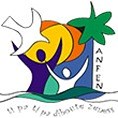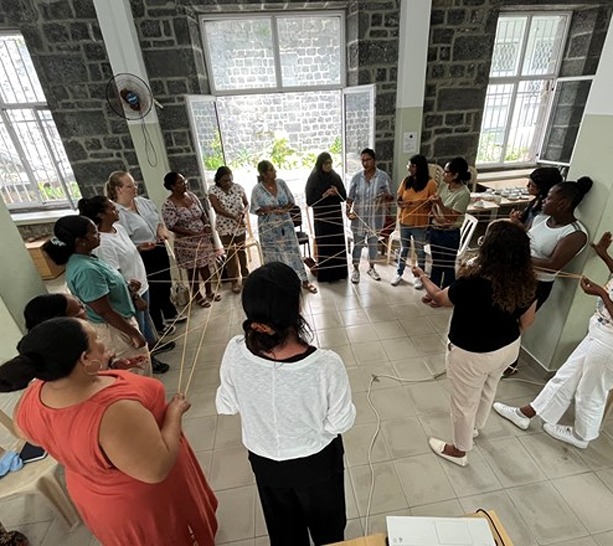
Adolescent Non Formal Education Network (ANFEN)
ANFEN (Adolescent Non-Formal Education Network) is a registered non-governmental organisation and a Mauritius Qualifications Authority (MQA) certified institution that has been committed to transforming the lives of vulnerable, out-of-school adolescents since its inception in 2000.
Initiated by four NGOs with the support of UNICEF, ANFEN was established to offer a second chance at education to adolescents who have dropped out of the formal school system and face significant psychosocial and socioeconomic challenges. Now encompassing 21 member organisations across Mauritius and Rodrigues, ANFEN operates as a platform that engages over 769 young individuals annually.
Through its member centres, the network offers alternative learning pathways, psychosocial support, social guidance, and hands-on vocational experiences. These efforts aim to equip young people with the tools needed to regain confidence, build life skills, and find their place in society.
Accreditation Number with the National Social Inclusion: NCSRF/2017/0062


- Pedagogical Program:
A specialized team of pedagogical trainers in charge of providing a comprehensive training, coaching, and mentoring in Inclusive Pedagogy to educators within the network. These trainers are deeply involved in curriculum development, ensuring that educational content is tailored to meet the diverse needs of all learners. The ultimate goal is to equip educators with the tools and strategies necessary to create inclusive learning environments that support the academic and social growth of students from vulnerable backgrounds.
- Psychosocial Programme:
The Psychosocial Programme focuses on improving the learning capacities and overall well-being of students through dedicated psychosocial support. Trained counsellors provide a safe and confidential space for students to express their concerns and receive guidance, helping them overcome personal and academic challenges. Social workers collaborate closely with students to address issues related to their home and community environments that may impact their educational experience.
The Psychosocial programme includes the training of counsellors, social workers, educators, and management teams of affiliated centres. These professionals are equipped with the skills to offer effective psychosocial accompaniment, ensuring that the emotional and psychological needs of students are met, thereby fostering a more supportive and conducive learning environment.
- TVET / Employability Programme:
This programme aims to create equal opportunities for low academic achievers aged 16 years old and above by providing them with access to technical training and sustainable employment pathways. Recognizing the barriers these adolescents face in traditional education systems, the programme offers specialized vocational training designed to equip them with practical, in-demand skills.
Ecole Culinaire Aline Leal has been established as a key component of this initiative, offering comprehensive technical training in culinary arts. The school’s curriculum is designed to prepare students for the professional workforce, with a focus on sustainable employability.
In 2000, through an initiative of UNICEF, 4 non-governmental organizations (NGOs) working with adolescents who were failing in school decided to join forces to form a network. Adolescent Non-Formal Education Network, said ANFEN, was born.
Today, it is a dynamic network made up of 21 NGOs in Mauritius and Rodrigues, which every year provides non-formal education to around 1,000 vulnerable adolescents who are outside the traditional school circuit. During the seminars and workshops organized at the creation phase of the ANFEN network, the members voted for the non-formal approach, which over the years has proven to be the most appropriate formula for adolescents who are failing at school at primary level in the traditional public system (called “mainstream”).
The overarching approach of non-formal education is based on interactivity in learning, as students actively engage in the process by reinvesting their knowledge of each subject. Their experience thus serves as a starting point for any new acquisition.
ANFEN’s priority has been to improve the quality of the programs offered to these young people by:
- Developing adapted pedagogy and psychosocial accompaniment, to ensure learning and integral development of our vulnerable youth within non-formal education structures and
- By devising employability strategies to improve the teaching and learning of school dropouts so that they secure employment
- Facilitate access to education and training
Ensuring that the “Right to Education” as stipulated by Article 28 of the Convention on the Rights of the Child and the SDG 4 are respected with a special focus on adolescents with learning difficulties and psychosocial issues.
- Provide quality education
Adapting teaching methodologies to improve learning outcomes and the quality of education and training for learners requiring special support.
Improving learning capacities of learners through a psychosocial accompaniment
- Enhance the employability of learners
Equipping learners with relevant knowledge, skills and right attitudes for future learning, personal wellbeing, employability, socio economic integration and contribution towards sustainable development.
- Network & Capacity Building
Providing training and support to our Centres so that they are able to better accompany their beneficiaries
Mission: To support and empower our members in their efforts to integrate early school dropouts back into society.
Vision : To ensure that our adolescents become responsible citizens.
As a registered institution with the Mauritius Qualifications Authority (MQA), ANFEN continues to advance its mission of empowering out-of-school adolescents through access to quality, inclusive education and vocational training.
Among our milestones:
- 100% Pass Rate in National Certification Our flagship employability initiative, the Ecole Culinaire Aline Leal (ECAL), proudly achieved a 100% pass rate in 2024 for its first cohort of students who sat for the National Certificate Level 3 (NC3) in Food Production. This success reflects the dedication of our trainers, the commitment of our learners.
- Securing Formal Bus Passes for Students ANFEN successfully lobbied for and obtained official bus passes for learners across our affiliated centres—removing a significant barrier to access and ensuring regular attendance for vulnerable youth.
- A Growing Network As of today, ANFEN brings together a strong and dynamic network of 21 affiliated member centres across Mauritius and Rodrigues, each committed to providing non-formal education, psychosocial support, and life skills development.
- National Social Inclusion Foundation (NSIF)
- CSR
- Contributing member organisations that support our initiatives.





